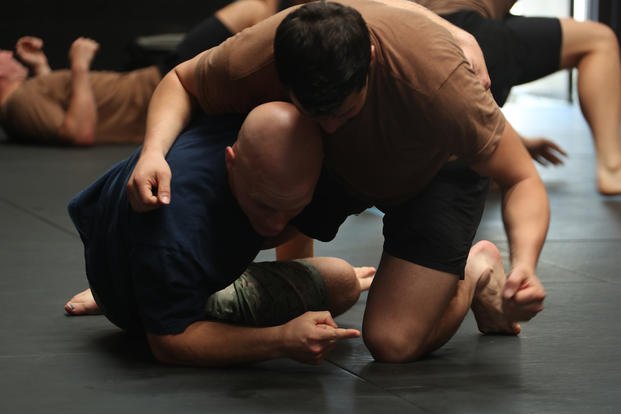In life, you might find (or have found) that the amount of time you prepare for a challenging event coincides with your rate of success or failure. As the saying goes: "Don't practice until you get it right. Practice until you can't get it wrong."
No matter what your goal is (scholastic, athletic, military special ops or in business), this saying will prove to be the foundation of your success. You simply have to put in the time preparing for your goal. Sometimes it can take years to "not get it wrong."
In the Special Ops world, there are more failures than successes. Most failures are not simply a lack of preparation. There have been super athletes who could outrun and swim most instructors who did not make it through a variety of Special Ops programs.
It is no secret that the attrition rate from SEAL training, RECON, Army SF, Rangers and Air Force PJs are through the roof, ranging anywhere from 50%-90%. So what makes a tough and above-average athlete quit or not meet program standards after years of preparation? It is usually a perfect storm of several things that occurs, not just one.
Here are a few reasons why people fail to reach their goals in this world that are not linked directly to training:
1. Age and world experience
If you are young, fresh out of high school, lack maturity and hard work experiences, and feel homesick, this could be a determining factor in how you process a day of not performing on par with your classmates. Living in a new city, sleeping in barracks, missing your home and loved ones, and having to perform at 100% while instructors constantly hand you negative feedback could be the tipping point that breaks you.
Face it: If the hardest thing you have done is play football and graduate high school, you may need more growth before joining the military. If you've endured daily hard work, had a tough childhood or strived to be the best at something in life, you may have the resilience to make it through training at a young age.
Lacking confidence in your abilities usually travels with this level of world experience and maturity, and that is a killer in the Special Ops world.
2. How to handle it
Get some real experiences of your own, away from home. It can be work, further education, continued high-level athletics or a combination of them all, but get through the homesick phase long before you attempt Special Ops training. There are young students in every class who quit before the training even starts during the pre-training pipeline phase. A little maturity goes a long way in the Special Ops world. That is why most programs prefer that candidates have 3-4 years of experience before trying out.
Note: There is nothing in the Navy that prepares you for Navy SEAL training, so it makes more sense to go to BUD/S from the street, not the fleet.
Fewer transfers from the Navy occur these days. Most people who attend BUD/S come directly from boot camp. More than half of enlisted members in the teams have college degrees.
3. Another perspective
There are some remarkable teens who graduate into the Special Ops world, but they are few compared to the numbers that started. Some of the Special Operators I know who did get out of high school and graduate BUD/S at 18 or 19 years old said they felt that if they failed, they did not have a comfortable backup plan like many of the older students.
Not knowing where they would serve the remainder of their Navy contract scared them more than quitting.
Some of the older students at BUD/S were married, had been in the Navy or had a great job for years prior to going to BUD/S. Being able to say, "I can always go back to ___________ " was a common rationalization from the older guys (24+) at SEAL training who did not make it.
Obviously, 18 years old is old enough to serve our country, and I applaud anyone considering this path. There are some exceptional Special Operators who are 38-40 years old with 20 years of experience who are invaluable to our country. So I am not saying do not serve. Just be aware of the challenges you will face when you're away from home for the first time and know how to deal mentally with that very real challenge.
For more thoughts on the subject, read Top Ten Reasons Why People Fail Special Ops.
Stew Smith is a former Navy SEAL and fitness author certified as a Strength and Conditioning Specialist (CSCS) with the National Strength and Conditioning Association. Visit his Fitness eBook store if you're looking to start a workout program to create a healthy lifestyle. Send your fitness questions to stew@stewsmith.com.
Want to Learn More About Military Life?
Whether you're thinking of joining the military, looking for fitness and basic training tips, or keeping up with military life and benefits, Military.com has you covered. Subscribe to Military.com to have military news, updates and resources delivered directly to your inbox.



















